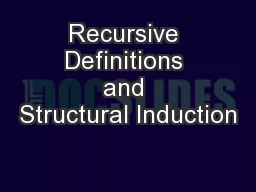PPT-Part four Induction, ethics and other minds
Author : liane-varnes | Published Date : 2018-09-24
The problem of other minds Introduction Other People Animals Justification The problem of other minds analogy Traditional View Argument from analogy to justify our
Presentation Embed Code
Download Presentation
Download Presentation The PPT/PDF document "Part four Induction, ethics and other mi..." is the property of its rightful owner. Permission is granted to download and print the materials on this website for personal, non-commercial use only, and to display it on your personal computer provided you do not modify the materials and that you retain all copyright notices contained in the materials. By downloading content from our website, you accept the terms of this agreement.
Part four Induction, ethics and other minds: Transcript
Download Rules Of Document
"Part four Induction, ethics and other minds"The content belongs to its owner. You may download and print it for personal use, without modification, and keep all copyright notices. By downloading, you agree to these terms.
Related Documents














